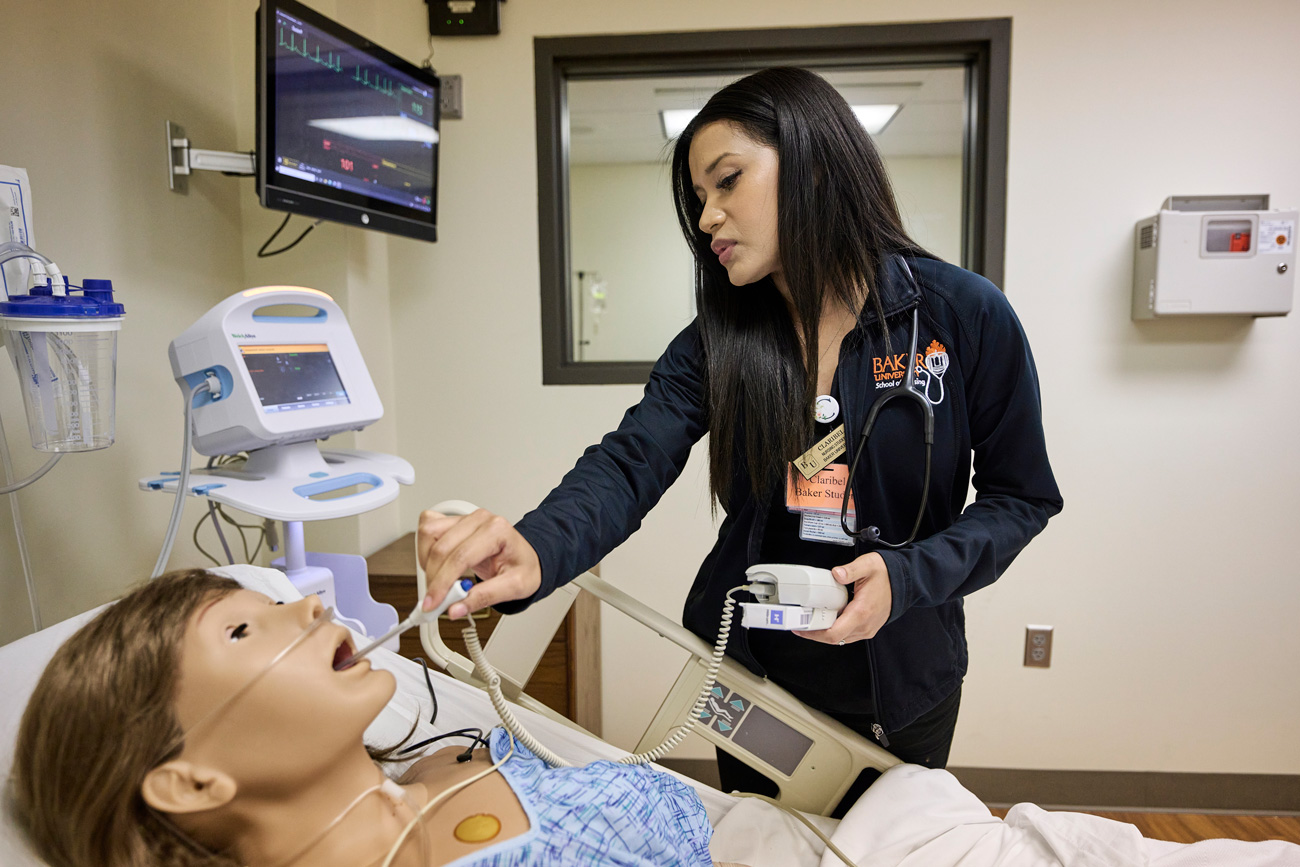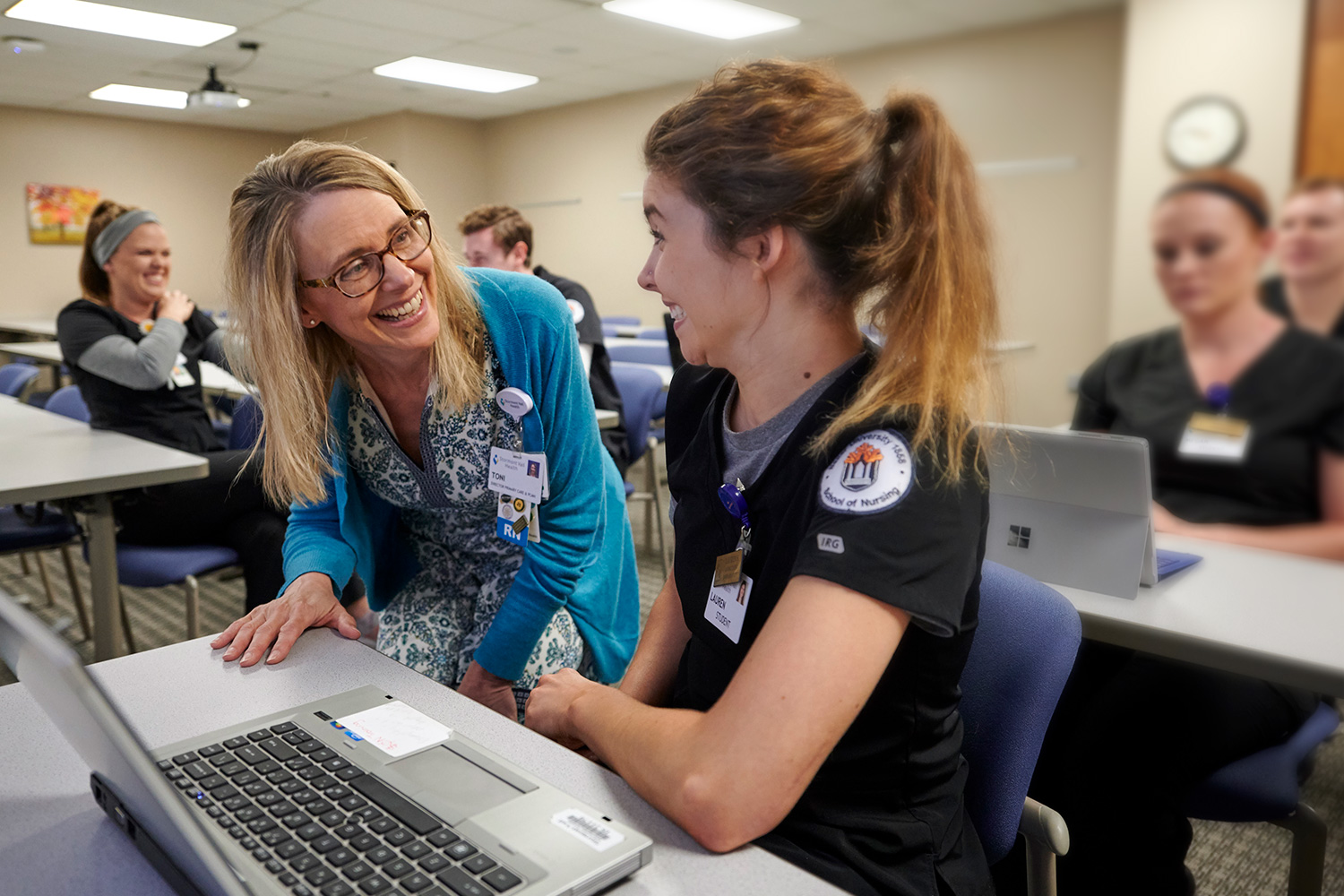
Marlene Eicher
School of Nursing
Associate Dean of Graduate Programs
Step Into a Vital Role: Become a Nurse Educator
About
Are you a bachelor’s-educated RN with a strong clinical background who has a passion for mentoring others and sharing knowledge?
If so, a career in nursing education could be a logical next step.
There is a significant need for nurse educators. According to the American Association of Colleges of Nursing (AACN), faculty shortages across the United States are limiting the number of students that colleges and universities can accept—at a time when new nurses are desperately needed.
The Reason for Openings in Nurse Educator Positions
Several factors have led to the increased openings in nurse educator positions. The AACN has reported that the overall nursing shortage is to blame, spurred on by an aging population, increasing health care needs, and a large number of nurses retiring.
1. Aging Faculty
The National League for Nursing (NLN) has reported that a significant number of nurse educators are nearing retirement, so the need for new nurse educators—particularly nurses of color–is high. To maintain accreditation and high-quality standards, nursing programs must meet faculty-to-student ratio requirements, necessitating adequate staffing of nurse educators.
2. Increased Demand for Health Care Services
Not only are many nurse educators reaching the age of retirement but the United States population is also aging. This higher demand means a larger demand for qualified nurses, which requires more nurse educators.
3. Expanding Nursing Programs
Both the AACN and NLN have reported that qualified students are being turned away from nursing programs because of the lack of qualified nurse educators. This is happening at the same time that many institutions and health care employers are encouraging or requiring RNs to obtain more-advanced degrees. This trend increases the need for advanced nurse educators.
4. Research and Evidence-Based Practice
Nurse educators play a crucial role in conducting research and promoting evidence-based practice. With the health care industry increasingly focused on evidence-based care, the demand for nurse educators who can contribute to and teach these practices is rising.
Nursing Education Careers
A nursing education career can look very different based on your nurse educator role and responsibilities. In general, though, nurse educators are responsible for the following:
- Developing curriculum
- Providing clinical instruction at colleges and universities or at health care organizations
- Assessing and evaluating nursing students
They may also:
- Facilitate continuing education programs and workshops
- Conduct independent research
- Perform leadership and administrative tasks
- Develop policy
- Advocate for nursing standards
- Participate in community outreach and public health education programs
In your nursing education career, you could work in a variety of settings:
- Hospitals and health care facilities
- Academic institutions
- Online and distance learning platforms
- Community and public health settings
- Professional associations and organizations
- Research institutions
- Corporate and consulting firms
- Government agencies and organizations
The MSN in Nursing Education at Baker University
If you are excited about undertaking a nurse educator role and responsibilities, you will want to consider Baker University’s MSN in Nursing Education. Our 100 percent online program is accredited by the Commission on Collegiate Nursing Education (CCNE) and prepares you to educate the next generation of nurses.
Our 32-credit-hour program offers flexible scheduling options and can be completed in two years on average.




